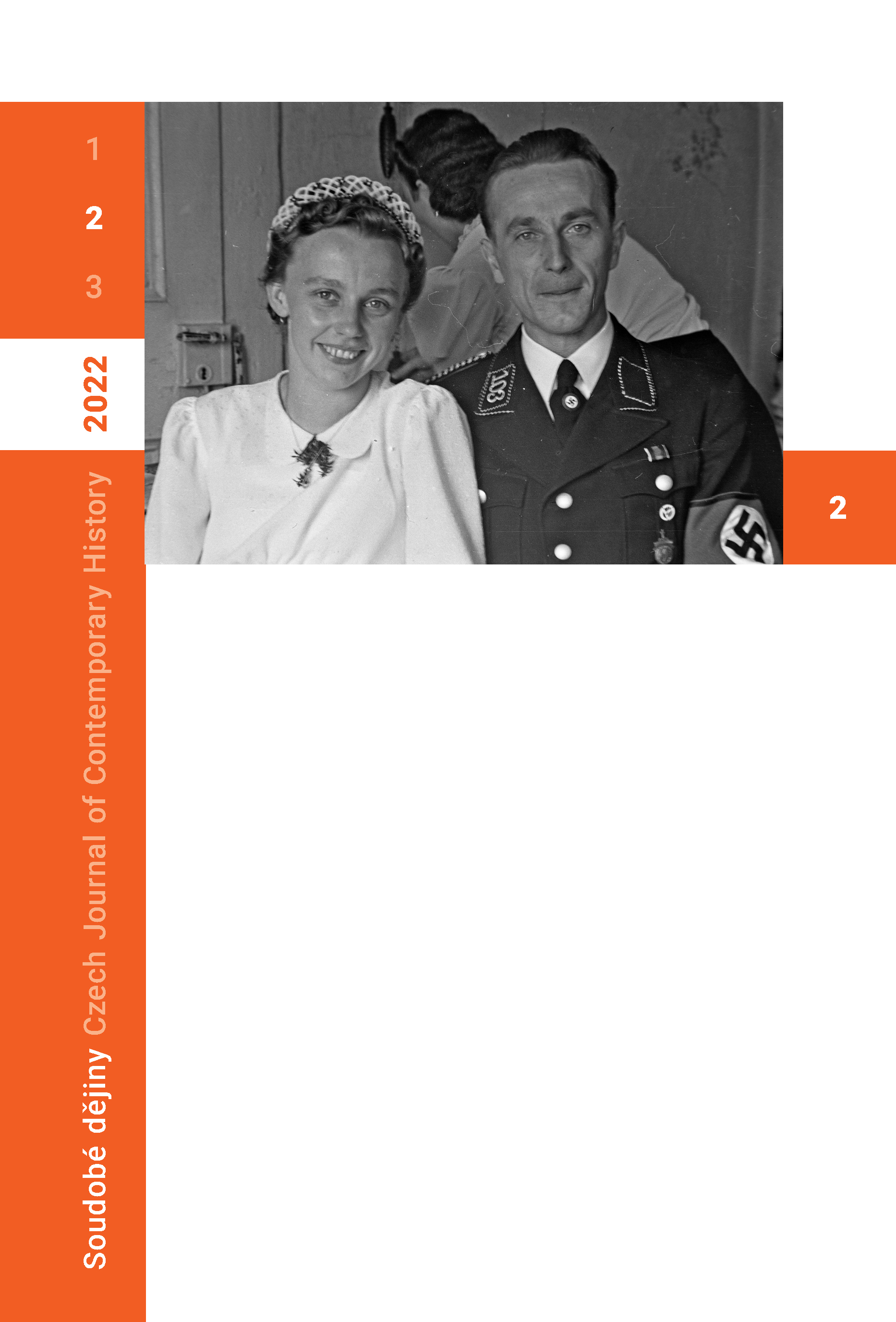Příběh Ladislava Novomeského s otevřeným koncem...?
The Story of Ladislav Novomeský with an Open Ending...?
Author(s): Markéta DevátáSubject(s): History, Cultural history, Political history, Interwar Period (1920 - 1939), WW II and following years (1940 - 1949), Post-War period (1950 - 1989), History of Communism, Book-Review
Published by: AV ČR - Akademie věd České republiky - Ústav pro soudobé dějiny
Keywords: Ladislav Novomeský;Slovakia;Czechoslovakia;communist movement;Slovak intellectuals;political trials;political rehabilitations;"bourgeois nationalism"
Summary/Abstract: Zdeněk Doskočil’s biography, "V žaláři a vyhnanství: Ladislav Novomeský v éře stalinismu a poststalinismu" [In Prison and Exile: Ladislav Novomeský in the Era of Stalinism and Post-Stalinism], presents the fate of the Slovak and Czechoslovak poet, journalist and politician Ladislav Novomeský (1904–1976). In interwar Prague, Novomeský was involved in the activities of the Slovak left-wing cultural group DAV. During the Second World War he became a member of the illegal leadership of the Slovak Communist Party and after the war he was a deputy of the National Assembly and, as Commissioner (povereník) of Education and Enlightenment, also a member of the Slovak government. In 1951 he was arrested and, in 1954, in a political trial together with Gustáv Husák (1913–1991) and other so-called Slovak bourgeois nationalists, he was sentenced to ten years in prison. Having been released a year later, however, he returned to public life and eventually to high political office during the 1960s. The reviewer appreciates the sensitivity and knowledge with which Doskočil depicts Novomeský’s political and human portrait from an extensive factual base, outlines his world of meaning and ideas, and critically examines his lifelong belief in communist ideals. At the same time, however, she questions the book’s timespan: the biography clearly focuses on the period of Novomeský’s imprisonment and subsequent path to political rehabilitation, ending in the mid-1960s. Furthermore, she raises questions that she believes deserve deeper illumination. For example: What was Novomeský’s relationship with Husák? What were and how did he perform in his political functions? And was he not sometimes a more autonomous actor than the author portrays him to be?
Journal: Soudobé Dějiny
- Issue Year: XXIX/2022
- Issue No: 2
- Page Range: 562-568
- Page Count: 7
- Language: Czech

